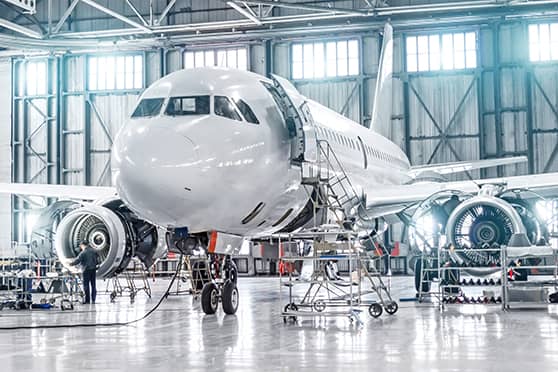Summary
Cracking JEE Advanced and state joint entrance exams are needed to enrol in Aerospace Engineering courses
IIT Kharagpur and IIEST Shibpur offer both bachelor’s and master’s courses
If you are passionate about cutting-edge aircraft technology, a career in Aerospace Engineering can be the perfect choice. With this you can get a strong foothold in the aviation industry and get opportunities to work in advanced space research organisations like ISRO or NASA.
What is Aerospace Engineering
Aerospace Engineering is a specialised discipline that deals with the development, design, construction, testing and operation of aircraft, spaceships, propulsion systems, satellites and missiles. As an aerospace engineer, you’ll develop state-of-the art technologies and integrate them with aerospace vehicle systems used for transportation, communications, space exploration and defence systems.
Studying Aerospace Engineering:
- You need to clear your Class XII board exams or an equivalent exam with Physics, Chemistry and Maths as compulsory subjects. You need at least 75% aggregate for admission to IITs, NITs and GFTIs.
- You need to clear JEE Mains, conducted by the National Testing Agency (NTA), for admission to NITs, CFTIs and other engineering institutes.
- You need to clear JEE Advanced to get into IITs and IIT (ISM) Dhanbad. To be eligible for JEE Advanced, you need to be among the top 2,50,000 successful candidates (across all categories) in the BE/BTech paper of JEE Mains.
- You can also get an Aerospace Engineering degree by clearing any of the state joint entrance exams.
- For a master’s degree in Aerospace Engineering, you need to clear GATE (Graduate Aptitude Test in Engineering).
- You can also do a master’s degree in Aerospace Engineering after doing your BE/BTech in Mechanical Engineering, Electrical Engineering and Electronic Engineering.
Some top institutes for Aerospace Engineering:
IIT Kharagpur, West Bengal
Course: BTech in Aerospace Engineering.
-
Duration: Four years.
-
Admission: Depends on your rank in JEE Advanced.
Course: BTech+MTech (Dual) in Aerospace Engineering.
-
Duration: Five years.
-
Admission: Depends on your academic performance during the bachelor's degree.
Click here to learn more.
Indian Institute of Engineering Science and Technology, Shibpur
Course: BTech in Aerospace Engineering.
-
Duration: Four years.
-
Admission: Depends on your rank in JEE Mains.
Course: MTech in Aerospace Engineering.
-
Duration: Two years.
-
Admission: Depends on your GATE rank.
Course: Dual Degree (BTech+MTech) in Aerospace Engineering.
-
Duration: Five years.
-
Admission: Depends on your rank in JEE Mains.
Click here to learn more.
IIT Bombay, Maharashtra
Course: BTech in Aerospace Engineering.
-
Duration: Four years.
-
Admission: Depends on your rank in JEE Advanced.
Course: BTech+MTech (Dual) in Aerospace Engineering.
-
Duration: Five years.
-
Admission: Depends on your academic performance during the bachelor's degree.
Course: MTech in Aerospace Engineering.
-
Duration: Two years.
-
Admission: Depends on your GATE rank.
Click here to learn more.
Indian Institute of Space Science and Technology (IIST) Thiruvananthapuram, Kerala
Course: BTech in Aerospace Engineering.
-
Duration: Four years.
-
Admission: Depends on your rank in JEE Advanced.
Click here to learn more.
Manipal Institute of Technology, Karnataka
Course: BTech in Aerospace Engineering.
-
Duration: Four years.
-
Admission: Depends on your rank in the entrance exam conducted by the institute.
Click here to learn more.
Birla Institute of Technology Mesra, Ranchi
Course: MTech in Aerospace Engineering.
-
Duration: Two years.
-
Admission: Depends on your GATE rank.
Click here to learn more.
Lovely Professional University, Punjab
Course: BTech in Aerospace Engineering.
-
Duration: Four years.
-
Admission: Depends on your rank in the entrance exam conducted by the university.
Click here to know more.
Studying abroad:
Aerospace Engineering is one of the most in-demand Engineering courses around the world. Here’s a list of foreign institutes that offer such courses:
- Massachusetts Institute of Technology (MIT), US
- Georgia Institute of Technology, US
- Stanford University, US
- University of Cambridge, UK
- University of Bristol, UK
- University of Toronto, Canada
Job roles with an Aerospace Engineering degree:
-
Aerospace engineer: They explore several methods for producing fuel-efficient aircraft components and engines. They also calculate project costs and timelines.
-
Project manager: They work on increasing flight safety, fuel efficiency and the environmental impact of air travel. They also work on various aviation-related projects that are closely linked with national security.
-
Aircraft production manager: They supervise and organise efficient aircraft production lines. It’s their job to ensure that the aircraft meets industry standards and safety regulations.
-
Mechanical design engineer: They examine specifications and other associated data to build mechanical systems. They also inspect production lines and measure physical dimensions for machinery.
-
Aerospace designer checker: Their job entails conducting research, analysing data and developing structural engineering standards for both metallic and non-metallic components.
Last updated on 07 Mar 2022

